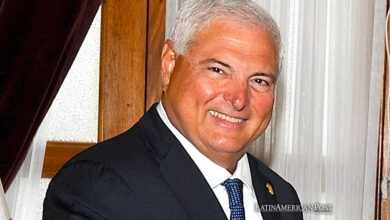Panama Begins its 3rd Week of Protests
The Protesters and the Government of President Laurentino Cortizo had Reached an Agreement, but then it Fell Apart. The Executive Warns of Risks of Shortages in Several Cities of the Country.

Photo: Twitter
LatinAmerican Post | Santiago Gómez Hernández
Listen to this article
Leer en español: Última Hora: Panamá empieza su 3 semana de protestas
Panamanians begin their 3 weeks of protests and the Government fears a general shortage in the isthmus. After a possible agreed exit between the Government and an alliance of unions and associations, the pact was broken.
Luis Sánchez, one of the negotiating leaders of the protesters, said the same Monday: "Today I break in front of the cameras what was signed yesterday because I owe it to the bases and the bases are the ones with the last mandate".
Also read: The infamous story of Death Flights: why were 4 Argentine ex-military convicted?
Sánchez, who is a teacher leader, had reached an agreement with the Government of Laurentino Cortizo last Sunday. Both parties had agreed to lower fuel prices and to lift roadblocks that have been hindering connectivity on the isthmus.
Despite the fact that the agreement agreed to lower the price of a gallon of gasoline to 3.25 dollars and a possible reduction in the basic basket and medicines, many other protesters warned that they did not agree with the negotiation, which forced Sánchez to reject the same agreement that he had signed hours before. However, the government's promise to reduce the price to $3.25 per gallon had already begun to be applied in various regions of the Central American country.
The demonstrations that have been going on for more than 2 weeks bring together various unions, guilds and indigenous communities in the country. Within this large sector are teachers, farmers, health workers, among other groups.
In addition to the reduction in the price of gasoline, the protesters also ask for a policy of job creation, reduction of high salaries within the public sector and the elimination of civil servant privileges, among other requests.




